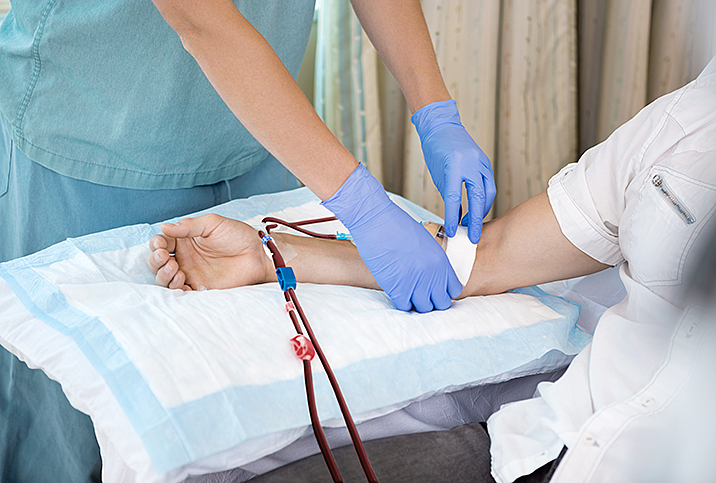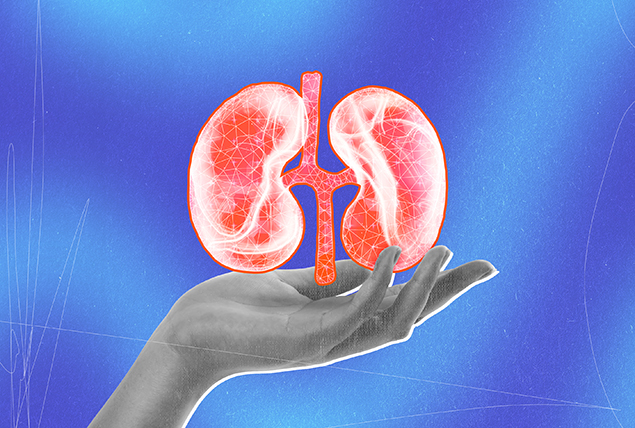How Will Chronic Kidney Disease Impact My Life?

According to the American Kidney Fund, about 135,000 Americans were diagnosed with kidney failure in 2019. Often referred to as a silent killer, kidney disease doesn't often present symptoms until later stages.
The disease is typically characterized by a gradual decline of the kidneys' ability to filter waste, which leads to toxicity that impacts other organs in the body. The general consensus is that an early diagnosis of kidney disease is essential, because if the condition remains untreated for too long, kidney transplants represent a difficult-to-accomplish last resort.
Chronic kidney disease (CKD) can also affect sexual health. According to a study published in 2015, up to 70 percent of men with end-stage kidney failure experience some level of erectile dysfunction (ED). People with CKD can also experience menstruation irregularities, infertility and decreased sex drive.
Steps toward early awareness include regular checkups with your doctor if you have a genetic risk, as well as monitoring your sugar and blood pressure levels if you have diabetes or hypertension.
According to Kelly McNagny, Ph.D., a nephrology professor and kidney researcher at the University of British Columbia, a person can take action to prevent future damage.
"Certain people, African Americans for instance, tend to carry an allele of a gene that makes them more likely to get kidney disease," he added. "So if your genetics fit that profile, you should probably get tested."
What treatments are recommended?
To begin with, it's important to note kidney disease is an expensive disease to treat. According to 2019 statistics reported by the Centers for Disease Control and Prevention (CDC), treating Medicare beneficiaries with CKD cost $87.2 billion.
There are several ways to treat chronic kidney disease, ranging from medications and dialysis to an eventual transplant.
Blood dialysis, or hemodialysis, is the most common type of dialysis, according to the National Health Service (NHS) in the United Kingdom. The process involves attaching a tube with a needle to your arm and passing your blood from the tube into an external filtration machine, which "cleans" the blood and passes it back into your arm from a different tube. Hemodialysis is time consuming—up to four hours—and requires frequent visits to the hospital, as many as three times per week.
Patients today can access peritoneal dialysis, which is less invasive compared to blood dialysis and can be administered at home. To start treatment, an incision is made near the belly button, a catheter is attached to it and waste is filtered into a bag.
Are there any side effects?
"With dialysis, you're always at a risk for infection," McNagny noted.
All types of dialysis can also lead to fatigue. Hemodialysis, in particular, can cause itchy skin and muscle cramps for some people. There's a risk of drops in blood pressure due to fluid loss in the body. Therefore, it's important to follow your doctor's fluid intake recommendations. Patients receiving hemodialysis can face an increased risk of sepsis, which can lead to multiple organ failure.
Some other side effects may include loss of libido and erectile dysfunction (ED) in men, according to the NHS.
However, following your doctor's advice and monitoring your body's symptoms can help ease the process.
Addressing impacts on sexual health
"Up to 70 percent of men and 84 percent of women with kidney disease report issues of sexual dysfunction," said Oliver Tate Brooks, M.D., a member of the American Kidney Fund's board of trustees and the chief medical officer at Watts Healthcare Corp. in Los Angeles.
This sexual dysfunction occurs primarily because the kidneys play an essential role in the cardiovascular system by filtering waste and toxins from the blood, and they also have a role in the body's chemistry and hormones.
"Issues of blood flow or pressure can cause problems with sexual arousal, while abnormal chemistry or hormone levels can lead to low libido, sexual arousal challenges or fertility issues," Brooks said. "When someone with kidney disease has progressed to kidney failure, they will require dialysis treatments or even a transplant to stay alive, both of which can be taxing processes for the human body and so impact libido and arousal."
Kidney disease can be treated with medications, which also have side effects impacting sexual health. On top of that, stress associated with receiving a diagnosis of kidney disease and undergoing treatments can be a factor.
For both men and women, kidney disease can lead to fertility issues.
"[In women,] the disruption of the hormone cycle can cause disruption with their menstrual cycle," Brooks said. "And the hormone prolactin—which stimulates the production of breast milk—can rise in concentration as kidney disease disrupts the production of the inhibitor hormone that stops prolactin, ultimately resulting in ovulation issues."
In men, the kidneys' influence on hormones and body chemistry levels can skew the level of testosterone in the body or cause the pituitary gland to send abnormal hormone responses to the testes. This can lead to erectile dysfunction. Brooks noted that in addition to erectile dysfunction, kidney disease can lead to a decrease in sperm count as well as impair sperm motility, or movement.
"Many people with kidney disease also have cardiovascular conditions that can impact their ability to get an erection," Brooks said.
When not managed properly, diabetes, the leading cause of kidney disease, can result in diabetic neuropathy or nerve damage caused by chronic high blood sugar. This, in turn, can create problems with blood pressure and lead to ED in men. Some medications used to treat kidney disease and its associated conditions also have side effects that impact a person's ability to become aroused.
It's important to note that once a person has been diagnosed with kidney disease, it will impact the rest of their life. While it can be managed with medications and treatment, there is currently no cure for kidney disease.
The stress and anxiety that comes with this realization can play a big role in impeding a person's libido and sexual performance, so it's vital to seek support and assistance. Good places to start looking for information and resources are:


















